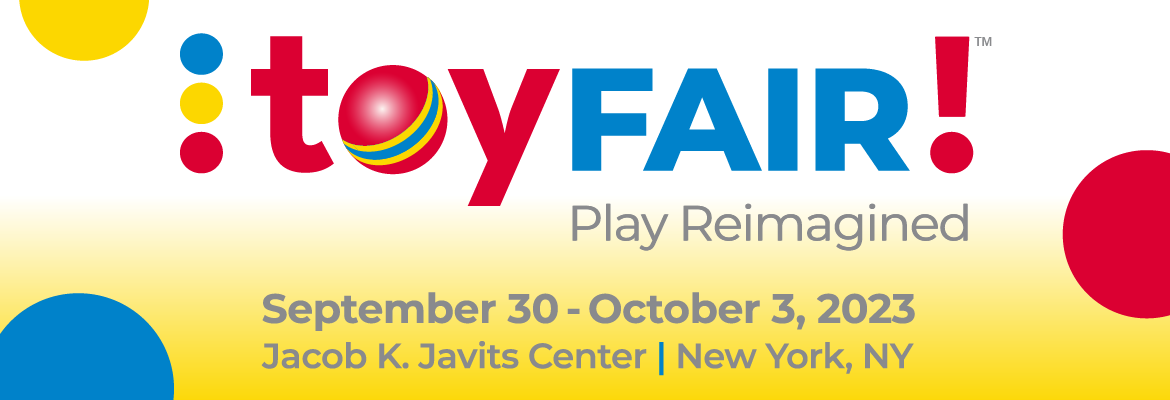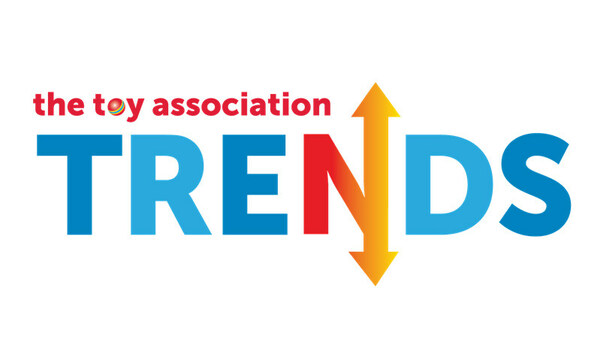Back to Basics, Be Authentic, Tween Takeover, Macro to Micro, & Pop Culture Lifestyle Named Biggest Trends of the Year
NEW YORK, NY | March 8, 2023 – This year’s biggest trends in toys, play, and kids’ entertainment strike a balance between turning back to classic play and leaning into new platforms, technologies, and consumer spending habits to drive innovation across the toy space. New data [1] to support the “kidult” trend has also proven that play isn’t just for kids, and this year, there are new demographics of consumers that toymakers will focus on for growth opportunities. These and other top 2023 toy trends were announced today by The Toy Association during The Play Date, its exclusive Q1 media event held in partnership with Adventure Media & Events in New York City. An in-depth version of the briefing, featuring more product examples and insights, is now available online.
“If there is one key takeaway that ties all the latest toy and play trends together, it’s that what consumers want matters more than ever,” said Adrienne Appell, executive vice president of marketing communications at The Toy Association. “In part due to the current economic climate, today’s shoppers hold the power and the purse strings. Yes, they are being budget-savvy, but they are also being smart about what they invest in. These toy trends underscore the industry’s ability to deftly respond to this constantly evolving landscape shaped by the way toy lovers of all ages are spending their leisure time — on and off their screens — and their money.”
The Toy Association’s team of trend-spotters met with hundreds of global toy companies over the past several months to track the latest developments in play and youth entertainment as well as scout trends across tech, fashion, home, social media, and other industries. The insights they gathered are predicted to drive toy sales now through the 2023 holiday season.
A summary of the top trends follows:
- BACK TO BASICS
Seventy-nine percent of U.S. parents view play as an important form of self-care. And while 77 percent of parents used toys during the pandemic to help their child with social-emotional learning, most are still doing so today (92%).[2] Self-care can look different to each person, from trying a new sport, to crafting the perfect charcuterie board, to meditating. In the toy space, this concept is taking shape across a range of products that instill healthy habits – from mindfulness and good sleep habits to increased social emotional awareness through nurturing play – as well as toys that introduce kids to new hobbies and help families find joy through classic play.
- TWEEN TAKEOVER
There is now enough data on the kidult consumer to know that play isn’t just for kids; The NPD Group recently reported that kidults (ages 12 and up) are currently the biggest driver of growth in the toy industry. While adults have been turning to play to destress and incorporate more fun into their daily lives since the onset of the pandemic, this year we expect to see a surge in tween and teen toy buyers. Thanks to social media, this demographic sees a cool factor to collecting, customizing, and displaying toys on social platforms. The toy industry will respond to this demand with more toys that cater to the tween/teen demographic and beyond, including fidget/sensory toys, collectibles, arts & crafts, and tech toys.
- BE AUTHENTIC
Today’s shoppers are savvy, and authenticity matters more than ever to these conscious consumers. In the toy space, shoppers will be on the lookout for toys that offer deep play value while supporting companies that are enacting positive change in the world. In 2023, expect to see toys that incorporate various ways to play for consumers of all ages, including the elderly; new tech enhancements that reinforce fun and learning; and toys that not only teach social responsibility, diversity, and sustainability, but are made by companies that engage in such practices behind the scenes. Companies will forge or expand partnerships with verified experts in fields related to education, diversity, and sustainability as the toy industry goes the extra mile to “be authentic” and deliver what truly matters to families.
- MACRO TO MICRO
From jumbo-sized plush and oversized versions of classic games that have a novelty factor, to tiny craft projects and micro-sized, functional collectibles and playsets, this year’s Macro to Micro trend is driven primarily by social media, where unique and quirky toys have the potential to go viral and bolster consumer demand. While novelty and online shareability are a plus, these playthings are also sought after for their distinctive play elements – including collectability, new gaming mechanics, and highly stylized details.
- POP CULTURE LIFESTYLE
With more touchpoints for brands and content than ever before, fandoms for many shoppers have evolved into lifestyles. In 2023, expect to see this idea play out with more toymakers digging into a wider array of fandoms and reaching into verticals for their brands. From tapping into gaming and anime themes, to leveraging “core” aesthetic trends on social media, to hitting a nostalgic note with re-launches from past decades, such as the 90s and Y2K, this is a trend that will engage multiple audiences, from nostalgic kidults with deeper pockets to younger kids engaging with their favorite characters and shows through streaming channels, digital worlds, and physical product. For brand owners, focusing on different fanbases offers new opportunities to expand their revenue streams.
- 2023 ENTERTAINMENT UPDATE
With licensed toys and games accounting for 31% of total toy sales (The NPD Group), The Toy Association continues to track highly anticipated movie and TV/streaming releases that will have an impact on the toy market. This year, studios will capitalize on evergreen toy and kids’ entertainment brands with refreshing new takes for the “big screen” (Barbie, Teenage Mutant Ninja Turtles, Super Mario Bros., and more) as well as sequels, trilogies, and spin-offs of fan-favorites (Indiana Jones, Guardians of the Galaxy, Spider-Man, etc.). In toy aisles, this will translate to fresh new playthings and opportunities for innovation on shelves in 2023. Streaming services, digital worlds, and gaming will also continue to invite toymakers to bring today’s most popular properties to the toy aisles.
The full trend report is now available at toyassociation.org/trends and on The Toy Association’s YouTube channel. To stay on top of the trends shaping the industry, save the date for Toy Fair 2023, taking place September 30 to October 3 in New York City, where 2023 holiday and new-for-2024 toys will be on display.
About The Toy Association www.toyassociation.org / www.thegeniusofplay.org / www.playsafe.org
Founded in 1916, The Toy Association™, Inc. is the not-for-profit trade association representing all businesses involved in creating and delivering toys and youth entertainment products for kids of all ages. The Toy Association leads the health and growth of the U.S. toy industry, which has an annual U.S. economic impact of $102.4 billion, and represents hundreds of companies including manufacturers, retailers, licensors and others who are involved in the youth entertainment industry. Our manufacturing members account for 93% of U.S. toy and game sales driving the annual $40 billion U.S. domestic toy market. The Toy Association serves as the industry’s voice on the developmental benefits of play and promotes play’s positive impact on childhood development to consumers and media. The organization has a long history of leadership in toy safety, having helped develop the first comprehensive toy safety standard more than 40 years ago, and remains committed to working with medical experts, government, consumers, and industry on ongoing programs to ensure safe and fun play. As a global leader, The Toy Association produces the world-renowned Toy Fair; advocates on behalf of members around the world; sustains the Canadian Toy Association; acts as secretariat for the International Council of Toy Industries and International Toy Industry CEO Roundtable; and chairs the committee that reviews and revises America’s widely emulated ASTM F963 toy safety standard.
[1] According to The NPD Group, people aged 12 and older account for roughly 25% of annual toy sales, generating $9 billion.
[2] According to a OnePoll survey of 2,000 U.S. parents commissioned by The Toy Association in September 2022.


